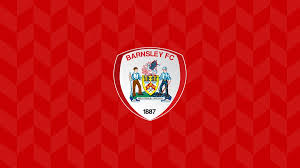Furthermore, their legacy influences managerial decisions, club branding, and fan pride, creating a continuous link between past and present. Embracing legends ensures that Barnsley’s rich heritage remains alive, inspiring future triumphs https://789bet.domains/.
Tactical Evolution and Playing Style Barnsley FC
Understanding Barnsley FC’s tactical approach allows us to appreciate its strategic adaptability and football philosophy. Over the decades, the club has experimented with various formations, emphasizing resilience, teamwork, and attacking play https://bbc.uk.net/.
Traditional Playing Style and Philosophy
Historically, Barnsley’s playing style reflected their working-class roots—hard-working, disciplined, and organized. The team prioritized defensive solidity combined with quick counter-attacks, often exploiting opponents’ weaknesses.
Management philosophies leaned towards pragmatic football, especially in lower divisions, where grit often trumped flair. Yet, they also valued technical skills, particularly from homegrown talents.
Tactical Changes in Recent Seasons
With evolving football trends, Barnsley adopted more possession-based and high-intensity tactics under different managers. Emphasizing pressing, quick transitions, and flexible formations like 4-2-3-1 or 3-4-3, the club aims to control the game and create scoring opportunities.
For example, under recent management, the team has employed a high-pressing style to regain possession quickly, emphasizing teamwork and tactical discipline. Such adaptations reflect broader trends in football, balancing traditional resilience with modern attacking principles.
Managerial Influence and Tactical Identity
The influence of managers like Daniel Stendel and Valerien Ismael significantly shaped Barnsley FC tactical identity. Each brought their own philosophy—Stendel’s energetic pressing and attacking fluidity, followed by Ismael’s emphasis on structured defense and quick counters.
Analyzing these shifts reveals how Barnsley adapts to different opponents and league challenges. It also highlights the importance of coaching philosophy in maintaining club identity while embracing tactical innovation.
